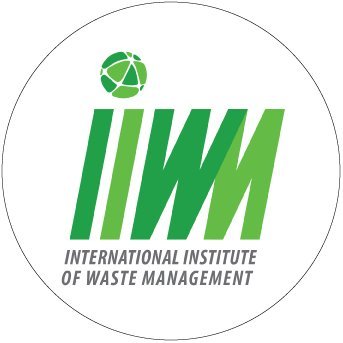Cause Area
Primary Sectors
Secondary Sectors
Geographies Served
Programs
-
Green wicket
District
Bangalore
States
Karnataka
IIWM is actively engaged in the implementation of the 'Green Wicket' project in collaboration with the German International Development Cooperation (GIZ) India. The project, initially conceived by GIZ-India in partnership with the Government of Karnataka in 2013, aims to raise environmental awareness among the general public using cricket as a platform, with cricketers serving as ambassadors and cricket stadiums as showcases of eco-friendly infrastructure.
The inaugural pilot project took place at Chinnaswamy Stadium in Bangalore and centered on key themes of water conservation, energy efficiency, waste management, and sanitation. The project successfully introduced various eco-friendly measures, including rainwater harvesting, solar rooftop photovoltaic systems, a biogas plant for canteen food waste, and sewage treatment and recycling facilities within the stadium. -
E-Waste Incubation Centre
StateStates
Meghalaya
IIWM, in collaboration with the State Council of Science, Technology, and Environment (SCSTE), Government of Meghalaya, is actively involved in establishing an E-waste Recycling Incubation Facility for Meghalaya. The primary objective of this project is to establish a cutting-edge recycling facility, to be operated by a private entity.
Given that the volume of E-waste generated in Meghalaya is currently insufficient to attract private investments, coupled with the fact that E-waste generation is on the rise, SCSTE and IIWM are taking proactive steps to address this issue at its nascent stage. The project aims to promote the eco-friendly management of E-waste, ensuring that it is properly channeled and handled before its quantity reaches unmanageable levels. -
Market improvement project
StateStates
Meghalaya
The 'Eco Improvement of Traditional Markets and Development of Eco-Tourism Linkages' project has been entrusted to IIWM by the 'Meghalaya Basin Development Authority (MBDA)', a government body in Meghalaya. This collaborative project involves the participation of MBDA, the State Council of Science, Technology, and Environment (SCSTE), and IIWM, targeting 54 traditional markets across Meghalaya.
The primary objective of this initiative is to enhance the infrastructure of these markets, with a specific focus on preserving traditional eco-friendly architectural elements and implementing effective waste management solutions. Many of these markets are located near rivers and streams, contributing to pollution in these water bodies. To address this issue, the project seeks to establish decentralized systems for solid and liquid waste management while also exploring the use of renewable energy sources. -
Capacity Building Program on Eco-Toxicity Concern and Environment Safety Management
StateStates
Madhya Pradesh
IIWM conducted a one-day Capacity Building Program titled "Eco-Toxicity Awareness and Environmental Safety Management" in Pithampur, Madhya Pradesh. The aim was to raise awareness about eco-toxicity concerns and environmental safety within specific industrial sectors, as well as to identify and address plant-specific issues. Participants mainly represented industries such as pharmaceuticals, automotive, chemicals, textiles, engineering, steel, waste management, and plastics. A total of fifty-eight individuals from eight different industrial sectors actively took part in this event.
Key objectives of the training program:
1. Highlight the significance of toxicity-related issues and evaluate environmental and occupational hazards within the designated industrial sectors.
2. Provide insights into health and safety monitoring procedures to foster a secure working environment within these industries.
3. Propose strategies for hazard prevention and control in workplace -
Green Campus
StateStates
Madhya Pradesh
The Green Campus Project, conceived by IIWM, aims to guide technical institutions in India toward becoming environmentally conscious and low-carbon entities. This initiative equips these institutions with strategies to address climate change, enhance resource efficiency, improve ecosystem management, and reduce waste and pollution.
The All India Council for Technical Education (AICTE) endorsed this project in January 2017 by issuing a circular to all AICTE-approved technical institutions. The circular urged active participation in IIWM's "Green Campus Initiative with Swachh Bharath Mission Focus" and encouraged institutions to seek IIWM's support in implementing this initiative. In essence, a green campus involves meticulously planned development, aiming to achieve and exceed goals related to net carbon emissions, water usage, and waste generation. The ultimate objective is to become a regenerative entity, harmonizing with the local environment.
Registration Details
-
Registration Number
70/11-12
-
CSR Form 1
Not Available
-
FCRA
Not Available
About
-
Headquarters
Bhopal, Madhya Pradesh
-
Since
2009
Impact
IIWM has achieved wide accolades and support from several government bodies and industrial houses for its contributions in waste management.
Vision and Mission
IIWM's main objective is to spread sustainable development with special focus on waste management.
Political & Religious Declarations
-
Political Affiliation
-
Religious Affiliation
Location
-
Headquarters
64, Samaj Sewa Nyas Building, E-8, Extension, Arera Colony
Directions, Bhopal, Madhya Pradesh -
Offices in Cities
Bangalore, New Delhi, Shillong, Bhopal
Other Details
-
Type
Non-profit
-
Sub Type
Trust
Website
Technology Adoption
-
SOC 2 Compliant
No
-
Financial Management
-
Beneficiary Management

